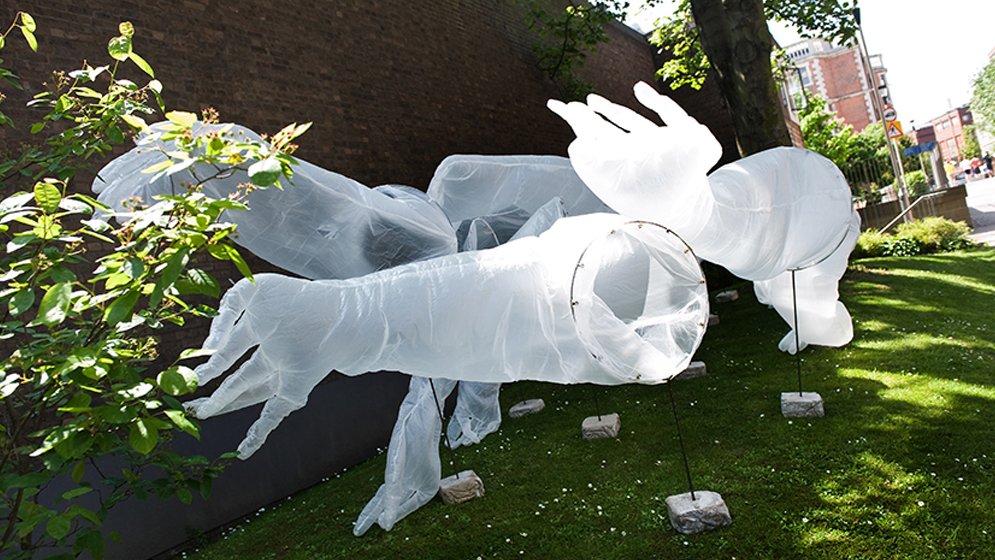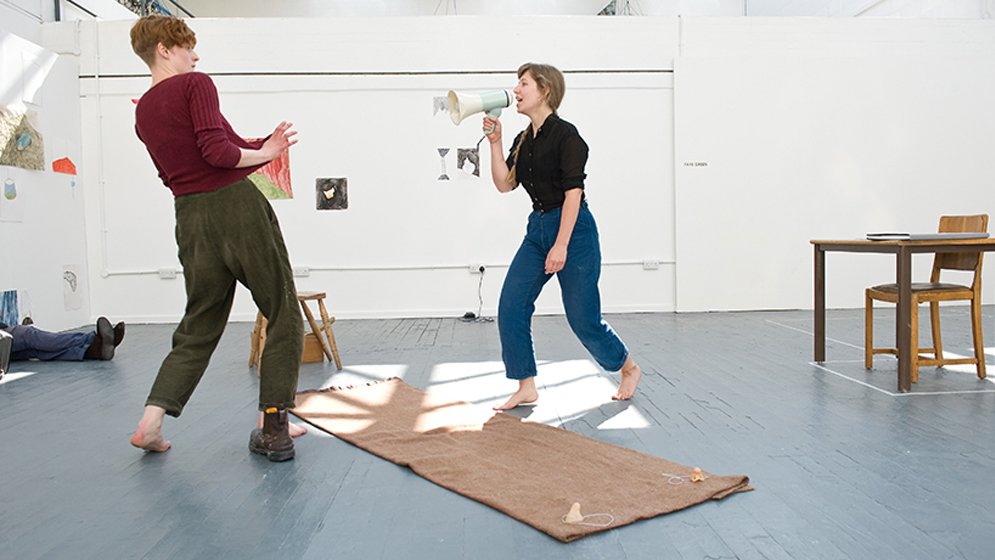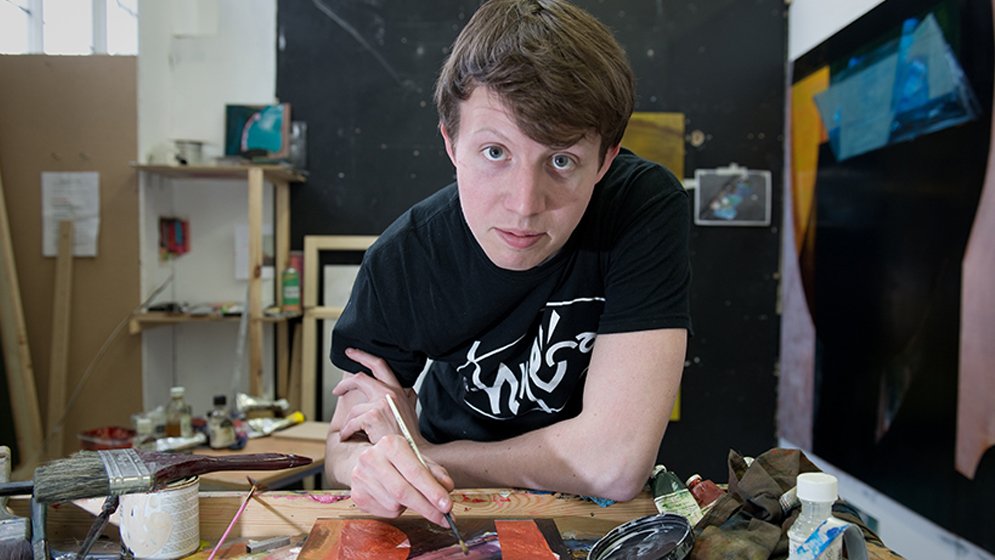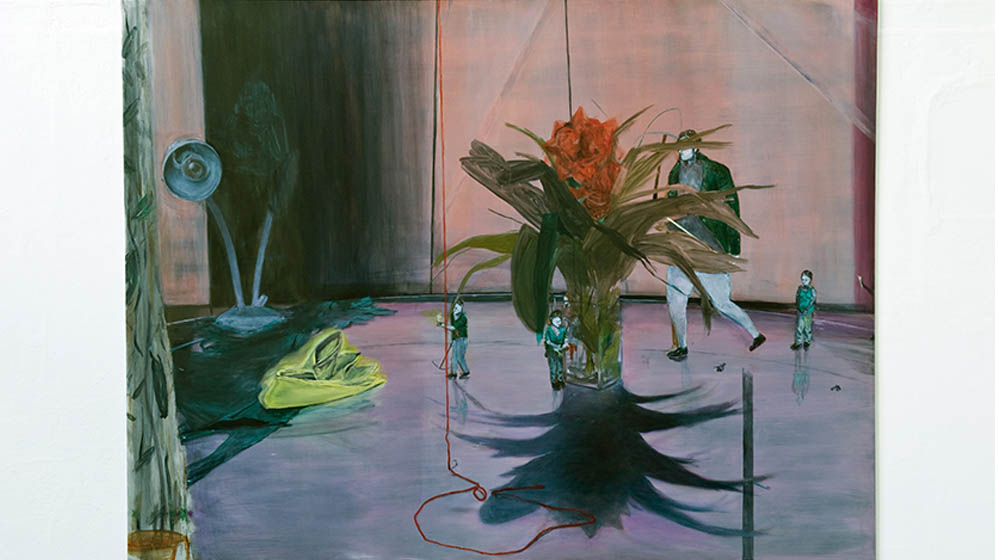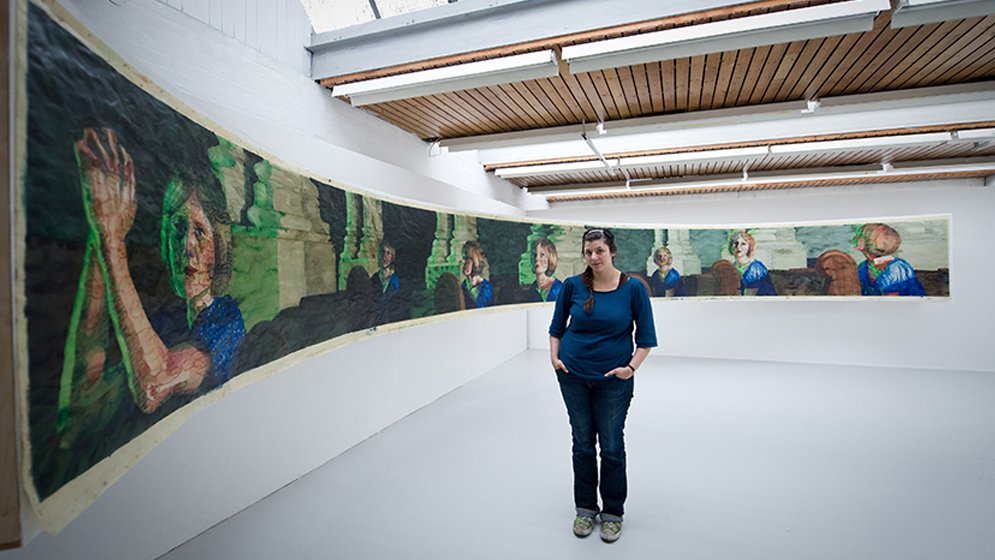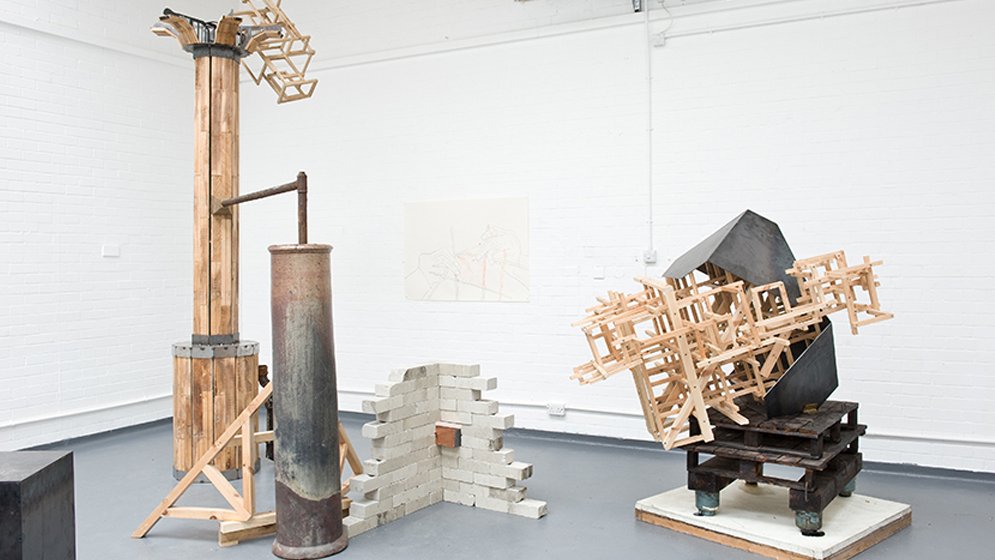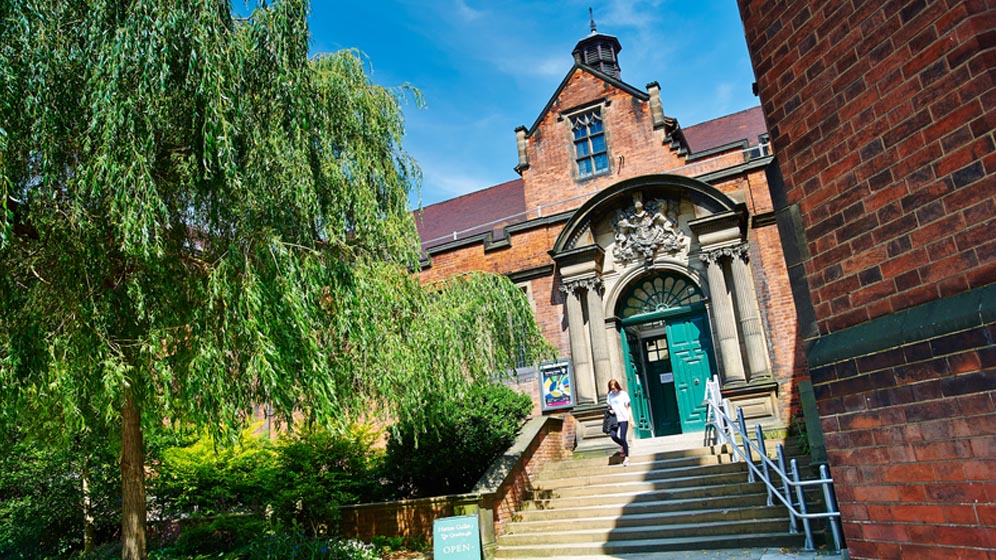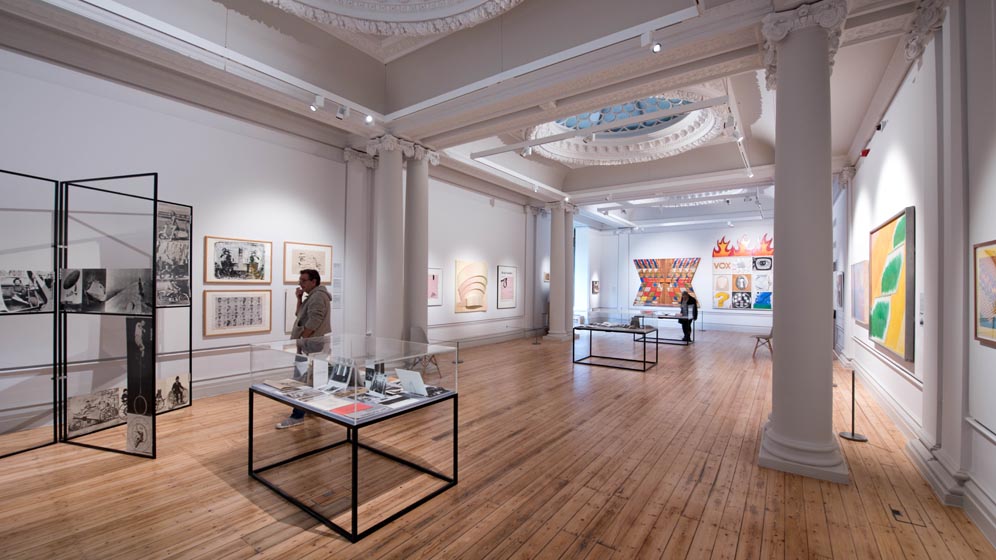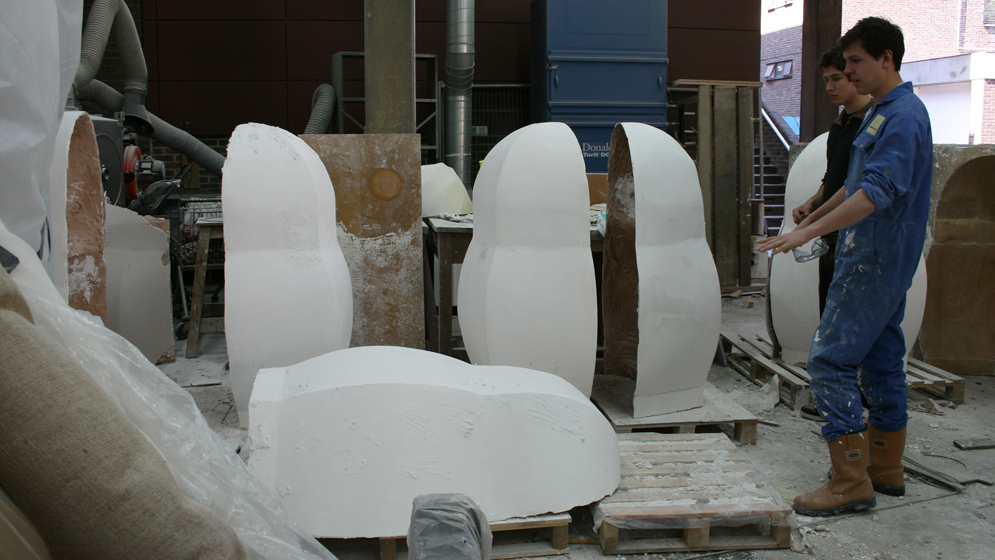Fine Art BA Honours
- UCAS code: W150
- Full time
- 4 years
Our Fine Art degree is a practice-based course in contemporary visual art for ambitious, motivated and imaginative artists.
You are currently viewing course information for entry year: 2026
Next start date:
- September 2026
UCAS Institution name and code:
- NEWC / N21
Course overview
This unique four-year fine art degree focuses on developing your professional, practical and theoretical skills alongside your own exciting body of work. You'll graduate ready for a career in the field or progression to postgraduate study.
You will have space and time to experiment and develop your ambitious ideas in the studio, as well as forming a deeper understanding of art history and contemporary art through taught modules.
Throughout your degree, you can choose from more than 20 specialist workshops, such as ceramics, photography, 16mm film, oil painting, performance and experimental printmaking.
You'll become a confident fine art professional, with the skills and knowledge of what it takes to thrive in the contemporary art world through live projects, placement opportunities, exhibitions and your final-year degree show. Your degree show gives you the chance to display your work to hundreds of visitors.
Your course and study experience - disclaimers and terms and conditions
Please rest assured we make all reasonable efforts to provide you with the programmes, services and facilities described. However, it may be necessary to make changes due to significant disruption, for example in response to Covid-19.
View our Academic experience page, which gives information about your Newcastle University study experience for the academic year 2025-26.
See our terms and conditions and student complaints information, which gives details of circumstances that may lead to changes to programmes, modules or University services.
Quality and ranking
Professional accreditation and recognition
All professional accreditations are reviewed regularly by their professional body.
Modules and learning
Modules
The information below is intended to provide an example of what you will study.
Most degrees are divided into stages. Each stage lasts for one academic year, and you'll complete modules totalling 120 credits by the end of each stage.
Our teaching is informed by research. Course content may change periodically to reflect developments in the discipline, the requirements of external bodies and partners, and student feedback.
Featured module
Fleshful Things: The Body and Visual ArtExplore the diverse range of ways in which the body has been represented in visual art.
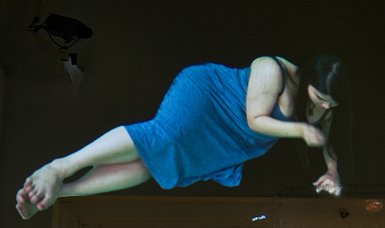
Optional module availability
Student demand for optional modules may affect availability.
Full details of the modules on offer will be published through the Programme Regulations and Specifications ahead of each academic year. This usually happens in May.
To find out more please see our terms and conditions
You will explore fundamental aspects of making art through projects in sculpture, printmaking, painting, performance and video. This is complemented by history of art modules that introduce a variety of perspectives on art history.
From Semester 2 you will initiate and develop your own projects, with guidance from your studio tutor and professional technicians.
You will also organise and publicise an exhibition as part of LifeWorkArt, and gain skills in curating, installing, marketing, fundraising and project planning.
Modules
| Compulsory Modules | Credits |
|---|---|
| Studio Practice I | 40 |
| Studio Practice II | 40 |
| Art Histories I | 20 |
| Art Histories II | 20 |
Your teaching is focused around you and your practice, supporting a self-initiated programme of studio work, driven by making in the studios and workshops. Each semester you can choose from several complementary specialist workshops in various media, and LifeWorkArt.
You’ll choose history of art modules, such as: Art and Protest, Art in the Creative City and Contemporary Art and Globalisation.
Modules
| Compulsory Modules | Credits |
|---|---|
| Studio Practice I | 40 |
| Studio Practice II | 40 |
With the approval of the Degree Programme Director alternative optional modules may also be available.
You will learn to develop and sustain self-directed studio practice, and how to direct and resource your practice appropriately.
You'll make informed decisions about working methods, materials and technical approaches, and carry out a LifeWorkArt external project.
You will write an art history dissertation with an option to take additional art history modules.
Modules
| Compulsory Modules | Credits |
|---|---|
| Art History Dissertation | 40 |
You can select an additional module, if required, from those listed above (if not already taken at Stage 2) to bring your total credits for the year to 120.
You'll undertake a self-initiated programme of studio work, resulting in the production of fully realised work for presentation in the final Degree Show.
You can also choose to undertake additional modules, such as LifeWorkArt, Art Writing, and Career Development.
The annual LifeWorkArt conference offers practical workshops and gives you the opportunity to meet recent graduates, artists, curators and arts professionals.
Modules
| Optional Modules | Credits |
|---|---|
| Studio Practice II | 60 |
| Studio Practice III | 80 |
| Studio Practice IV | 100 |
| Studio Practice V | 120 |
| LifeWorkArt External Project | 20 |
| Career Development for final year students | 20 |
We base these figures and graphs on the most up-to-date information available to us. They are based on the modules chosen by our students in 2024-25.
Teaching time is made up of:
- scheduled learning and teaching activities. These are timetabled activities with a member of staff present.
- structured guided learning. These are activities developed by staff to support engagement with module learning. Students or groups of students undertake these activities without direct staff participation or supervision
Teaching and assessment
Teaching methods
Teaching is focused around you and your practice, and is driven by making in the studios and workshops. You will develop an increasingly self-directed studio practice across the four years.
This will be supported and developed through regular one-to-one tutorials with your studio tutor, group crits, taught workshops and strands introducing you to new working methods.
You will also benefit from visiting artists, critics and curators who contribute to tutorials and workshops, alongside Newcastle University staff.
Assessment methods
You'll be assessed through a combination of:
-
Assessments
-
Assignments – written or fieldwork
-
Coursework
-
Degree show
-
Dissertation or research project
-
Essays
-
Group work
-
Practical sessions
-
Presentations
-
Projects
Skills and experience
Practical skills
You'll explore, experiment and expand your abilities through practical experiences, working in some of the best studios in the country.
You will have a dynamic programme of workshops, weekly lectures and seminars from artists, critics, curators, historians and art professionals to ensure you develop a broad perspective on art.
You will gain real-world experience of working in contemporary arts through the LifeWorkArt programme.
You will learn how to set up and run a broad range of individual and group projects such as placements, exhibitions, public art, residencies, community and education programmes, and art therapy.
Business skills
There are regular study abroad trips, supporting both the art history and studio components of the degree. Recent trips include: New York, the Venice Biennale, Madrid, Florence and Berlin.
You will have opportunities to engage with staff on international projects, such as a recent summer residency in Uganda, and public art project in Bologna.
Research skills
In the third year of your degree, you'll research and write your art history dissertation. This gives you an opportunity to further investigate and analyse a topic of your choice.
Past students have focused on individual artists, art groups and movements, and social and political issues in art.
You'll develop a greater awareness of the historical, theoretical and critical issues in the subject, while developing your own skills in independent research and critical investigation.
Opportunities
Study abroad
Experience life in another country by choosing to study abroad as part of your degree. You’ll be encouraged to embrace fun and challenging experiences, make connections with new communities and graduate as a globally aware professional, ready for your future.
You may choose to spend one semester of Stage 3 on an international exchange at a partner institution. In order to qualify, you must have attained an overall average grade of 55 or more at your stage 2 assessments.
Find out more about study abroad
Work placement
Get career ready with a work placement and leave as a confident professional in your field. You can apply to spend 9 to 12 months working in any organisation in the world, and receive University support from our dedicated team to secure your dream placement. Optional work placements take place between stages 3 and 4.
You'll gain first-hand experience of working in the sector, putting your learning into practice and developing your professional expertise.
It will extend your degree by a year and is subject to availability. It isn't available if you're spending a year studying abroad.
Facilities and environment
Facilities
As a Fine Art student at Newcastle you'll be part of the School of Arts and Cultures and be based in the Fine Art Building in the University's historic Quadrangle, which includes the Hatton Gallery. Along with your own studio space, you'll have access to:
- purpose-built studios
- exhibition spaces
- printmaking, metalwork, woodwork, sculpture/casting and digital media workshops
- an art supplies shop
- a student-run cafe
Read more about our Fine Art facilities
Support
You'll have the support of an academic member of staff as a personal tutor throughout your degree to help with academic and personal issues.
Peer mentors will help you in your first year. They are fellow students who can help you settle in and answer any questions you have when starting university.
Your future
Graduates have gone on to work as artists and curators, and take up a variety of roles across the cultural and creative sector, such as:
- setting up and running art galleries
- establishing studio projects
- local council arts and cultural teams
- visual arts officers
- teachers
- community arts specialists
- art therapists
- critics and writers
- art directors and technicians
- graphic designers
- illustrators
- set designers
Some graduates also opt to take arts-related postgraduate study in areas such as design and digital media.
The most recent survey of the destination of our Fine Art graduates six months after graduation shows half of them in professional work and a third in further study with the rest combining work and study or supporting their art practice with non-professional work.
Of those working in the cultural sector, 58% were in the North East through links they made while studying here.
Read more about how we support your career development
Make a difference
Sorry, you need JavaScript to view this video
Careers support
Our professional development programme, LifeWorkArt is integrated during each year. This is run in collaboration with many regional and national arts organisations and galleries and prepares you for professional art practice through projects such as:
- organising exhibitions
- attending field trips
- undertaking a gallery placement
- preparing a public art project
Read more about how we support your career development
Our Careers Service is one of the largest and best in the country, and we have strong links with employers. We provide an extensive range of opportunities to all students through our ncl+ initiative.
Visit our Careers Service website
Recognition of professional qualifications outside of the UK
If you’re studying an accredited degree and thinking about working in Europe after you graduate, the best place to find current information is the UK Government’s guidance on recognition of UK professional qualifications in EU member states. This official resource explains whether your profession is regulated in another country, what steps you need to take, and which organisation you should contact.
Entry requirements
All candidates are considered on an individual basis and we accept a broad range of qualifications.
The entrance requirements and offers below apply to 2026 entry.
| A-Level | |
|---|---|
| International Baccalaureate | |
|---|---|
Other UK and the Republic of Ireland qualifications
Alternative offers at Newcastle
Through one of our contextual or alternative offer routes, you could receive an offer of up to three grades lower than the typical requirements.
Contextual offers
We use certain contextual data from your UCAS form, alongside your application, to consider challenges that you may have faced in your education and the potential effect this may have had on your qualifications. This means you may be eligible to receive a lower contextual offer.
PARTNERS offers
One of the largest and longest support entry routes to university of its kind for students from underrepresented backgrounds. We support applicants from application through to study.
Realising Opportunities offers
A unique programme delivered in collaboration with 10 leading, research-intensive universities in the UK. The programme is open to students in Year 12/first year of college.
Pathways to Newcastle offers
Pathways to Newcastle, our national skills entry route, is available for specific subject areas.
High Performance Athletes
We support promising athletes at the application stage, who compete in regional, national or international levels in their sport.
Qualifications from outside the UK
English Language requirements
Entrance courses (INTO)
International Pathway courses are specialist programmes designed for international students who want to study in the UK. We provide a range of study options for international students in partnership with INTO.
These courses are specifically designed for international students who want to study in the UK and progress onto one of our undergraduate degrees. Our International Study Centre, has a range of study options including:
- International Foundation
- International Year One
- English Language courses
Find out more about International Pathway courses
Admissions policy
This policy applies to all undergraduate and postgraduate admissions at Newcastle University. It is intended to provide information about our admissions policies and procedures to applicants and potential applicants, to their advisors and family members, and to staff of the University.
University Admissions Policy and related policies and procedures
Credit transfer and Recognition of Prior Learning
Recognition of Prior Learning (RPL) can allow you to convert existing relevant university-level knowledge, skills and experience into credits towards a qualification. Find out more about the RPL policy which may apply to this course.
Fine Art portfolio submission and interview
A very important part of our selection process for the Fine Art degree is our inspection of a portfolio of your work. Successful candidates at the portfolio stage will be asked to attend an interview. For overseas candidates, we can organise a Zoom interview.
Find out more about applying to Fine Art
Tuition fees and scholarships
Tuition fees for academic year 2026-2027
The 2026 entry home fees have not yet been confirmed.
| Qualification: BA Honours | |
|---|---|
|
Home students full time 4 years |
Tuition fees (Year 1)
Not set |
|
International students full time 4 years |
Tuition fees (Year 1)
25,800 |
Year abroad and additional costs
For programmes where you can spend a year on a work placement or studying abroad, you will receive a significant fee reduction for that year.
Some of our degrees involve additional costs which are not covered by your tuition fees.
Scholarships
Find out more about:
Open days and events
You'll have a number of opportunities to meet us throughout the year at our on-campus and virtual open days.
You'll be able to:
- explore our beautiful campus
- find out about our vibrant city
- discover what students think about studying at Newcastle
You'll also have the opportunity to speak to academic staff and find out more about the subjects you're interested in.
Find out about how you can visit Newcastle in person and virtually.
We regularly travel overseas to meet with students interested in studying at Newcastle University. Visit our events calendar to find out when we're visiting your region.
How to apply
Apply through UCAS
To apply for undergraduate study at Newcastle University, you must use the online application system managed by the Universities and Colleges Admissions Service (UCAS). All UK schools and colleges, and a small number of EU and international establishments, are registered with UCAS. You will need:
- the UCAS name and institution codes for Newcastle University (NEWC/N21)
- the UCAS code for the course you want to apply for
- the UCAS 'buzzword' for your school or college
If you are applying independently, or are applying from a school or college which is not registered to manage applications, you will still use the Apply system. You will not need a buzzword.
Apply through UCASApply through an agent
International students often apply to us through an agent. Have a look at our recommended agents and get in touch with them.
Get in touch
By phone
Call us on +44 (0) 191 208 3333 and press option 1. Our opening hours are Monday to Friday 10am until 4pm.
Live chat
Our NCL chatbot might be able to give you an answer straight away. If not, it’ll direct you to someone who can help.
You'll find our NCL chatbot in the bottom right of this page.
Online
Keep updated
We regularly send email updates and extra information about the University.
Receive regular updates by email